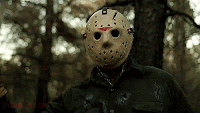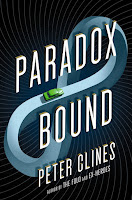Hope you all enjoyed your big meal yesterday. And if you didn’t celebrate Thanksgiving… well, I hope it was still a great and peaceful day for you. Maybe you at least had a day off.
Anyway, before we all dive into the capitalist nightmare of the day, I’d like to take a moment or three to discuss some personal history and–as I have in a couple other places on past Black Fridays–make an offer to those of you who may need it.
Over a decade ago, when I chose to become a full time writer, I knew it meant some changes. I’d been working in the film industry, and even as a non-union crew member, I was getting pretty solid wages. Not fantastic, but I was living on the lower edge of middle class. The decision to write full time would mean a pay cut, and I accepted that I’d be living tight for a while.
It only took about a year and a half for the usual unavoidable expenses to pile up. Car repairs, a very sick cat, and then the economy crashed so prices went up on a lot of things. On top of that, the magazine I was writing for gave all its freelancers a 20% pay cut. After that, well… In the space of another year I went from “living tight” to “way under the poverty line.” And that’s considering the poverty line in this country is much lower than it realistically should be. My bank accounts were always empty (sometimes overdrawn when things processed in a weird order—which meant fees). My credit cards were maxed out (which was a trigger to the credit card company to raise all my interest rates). I spent way too much time figuring out how each 20%-lower paycheck could be spread across three or four bills.
My girlfriend and I went through three years like that. Always stressed. Always sick with despair. Always waiting for that unavoidable, inevitable expense that’d crush us. We couldn’t turn the heat on for two winters in a row. Our phone got shut off. We went to the library to use the internet, and while we were there we’d steal rolls of toilet paper from the bathroom. Because we were that poor.
See, some folks like to whine about “handouts” or “entitlements,” but the truth is most poor people are just trying desperately to survive with a small degree of dignity.
Oh, speaking of which–guess what? The holidays suck for poor people. It’s just more anxiety. I hated the holidays. We could’t afford to give out candy so no Halloween. Thanksgiving was a few cans from the 99 Cent Store. Christmas was awful. We couldn’t even afford cards, let alone presents. Nothing for my girlfriend or my mom and dad. Nothing for my brother, sister in law, niece or nephew. Nothing for my friends. Being poor at the holidays is like when you forget to get something for that one person at the office party and you kind of squirm for an hour or so. Except you feel like that for every hour of every day for the entire season.
All that said… these days I’m in a better position, and I owe a good part of that to all of you. So if I can help some of you avoid feeling that miserable this holiday season, I’d like to do it.
All that said… these days I’m in a better position, and I owe a good part of that to all of you. So if I can help some of you avoid feeling that miserable this holiday season, I’d like to do it.
Again, this is only for those of you who need some help getting gifts for others. The people who are pulling unemployment, cutting back on everything, and feeling like crap because they can’t afford gifts for family or friends. It’s not so you can recommend someone who might like a free book. You could do that for them—go buy them a book.
I’m also doing this on the honor system, so if you’re just trying to save some cash or score an autographed book, I won’t be able to stop you. Just know that you’re a truly awful, selfish person and you’re taking away what might be someone’s brightest moment this season. And you’ll burn in the pits of hell, if you believe in that sort of thing. If not, Krampus will probably feed you to a squale. Violently.
So… Happy Holidays.









